The fateful punch that changed Michael Hutchence overnight
Michael Hutchence was a global rock star with a bevy of beauties hanging off his arm. Then, a fateful incident turned him into someone else.
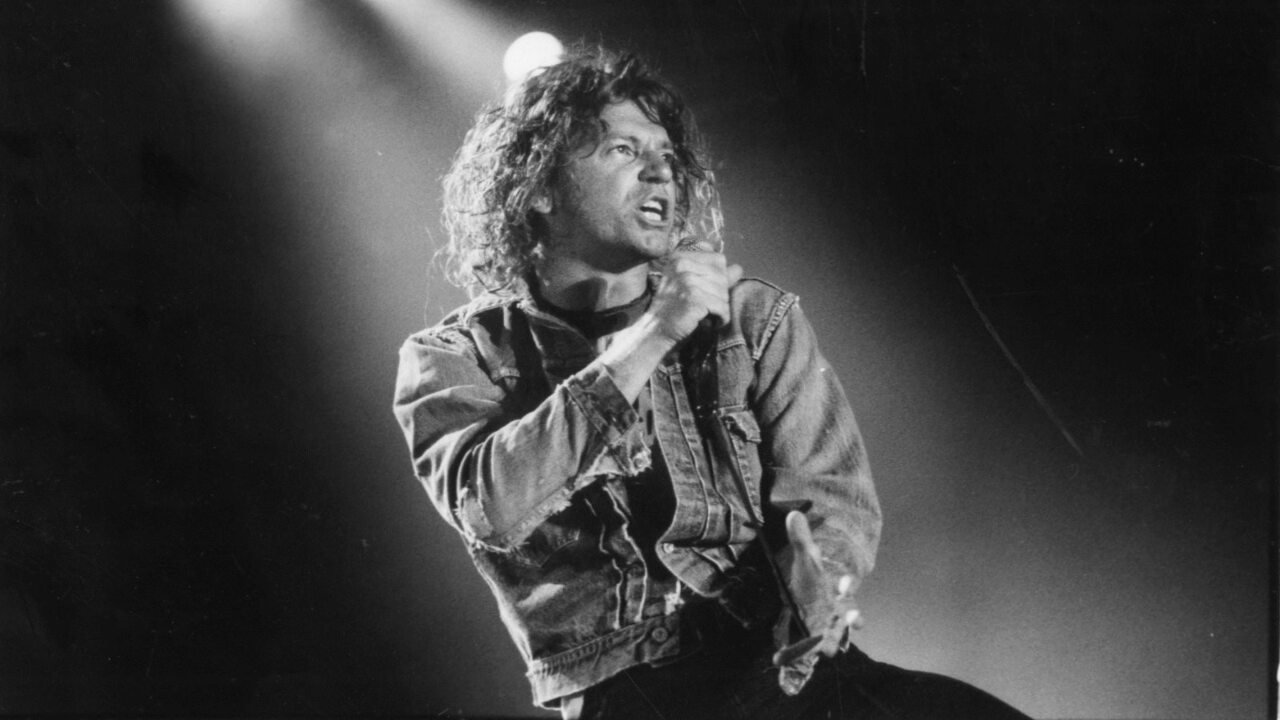
Michael Hutchence was standing in front of a sea of 74,000 fans, his arms spread wide and his head thrown back in ecstasy.
It was July 13, 1991, and the sold-out Wembley Stadium crowd was the biggest INXS had ever played to. The band were at their commercial peak, having performed to roughly 1.2 million people during the past 10-month run, and selling close to 10 million albums since 1987’s Kick turned them into international superstars.
A year later, Hutchence was lying unconscious in the middle of a Copenhagen street, the victim of a brutal attack that would instantly change his personality and begin a spiral that would end with his death in a Sydney hotel room.
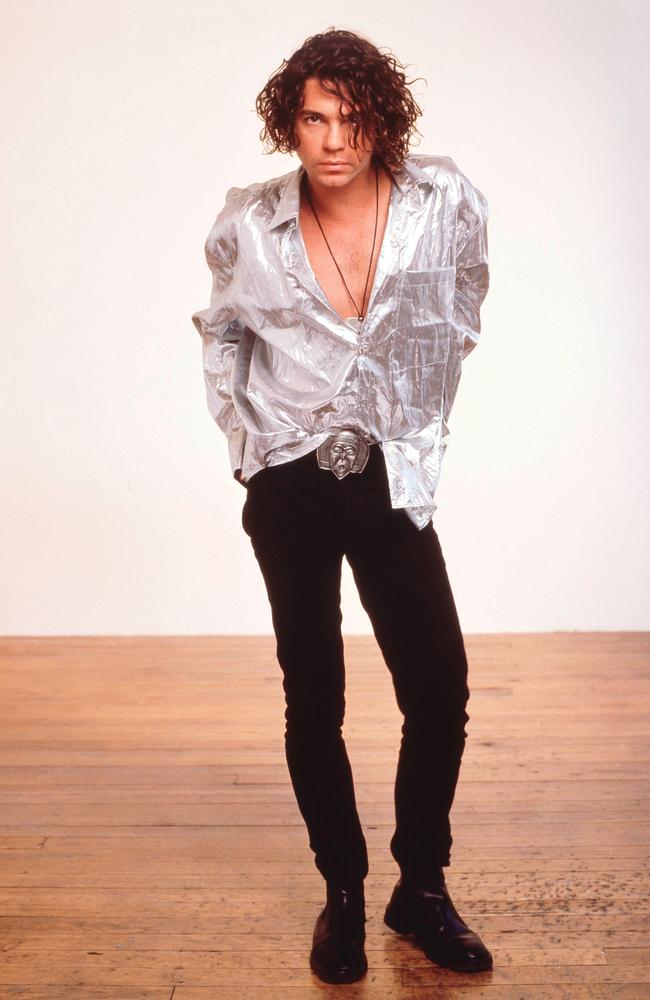
INTERNATIONAL SUPERSTARS
INXS are one of the most successful bands of all time, having sold more than 60 million records worldwide. Formed in 1977 around the three Farriss brothers — Andrew, Tim and Jon — and a handful of their mates, by early 1980, INXS had secured a shrewd manager who negotiated the band a five-album record deal. While their slick funk sound, tight instrumentation and pop smarts were essential, the key to their success lay in their charismatic frontman: Andrew’s high school friend Michael Hutchence, whose onstage persona straddled the line between Bono and Jim Morrison. They were still playing pubs in Sydney’s northern beaches, but Hutchence was built for stadiums.
Their first three albums established them as one of the top bands in Australia, with each record moving them further up the charts. With 1984’s The Swing, they scored their first local #1 album and #1 single with Original Sin.
The next year, Listen Like Thieves saw them become international stars, with the frenetic and funky What You Need hitting the US top five single charts. The stage was set for 1987’s Kick, which sold six million copies in America, spawned four top 10 singles in the States, and turned Michael Hutchence into a rock god.
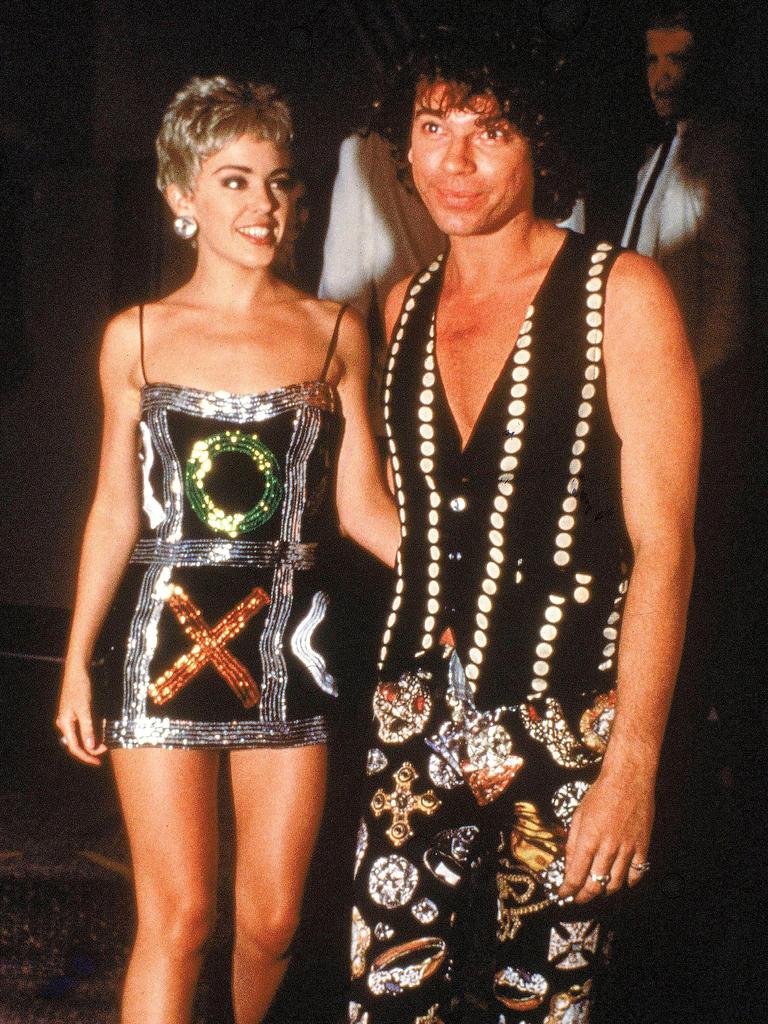

Rolling Stone magazine came calling and offered INXS a cover — the only caveat being that Hutchence alone was to be featured. Vehement about all six members being represented equally, they turned the opportunity down, but it proved a harbinger of future fissures within the group.
THE FATEFUL INCIDENT
By 1992, INXS were on a roll. X had sold a few million copies worldwide and shot two further singles into the US top 10: Suicide Blonde, which Hutchence had written about former fling Kylie Minogue’s bottled hair colour, and the dreamy Disappear.
Wishing to both take a hard-earned break from constantly being on the road and capitalise on their radio and MTV success, the band had decided not to tour off the back of their 1992 follow-up Welcome To Wherever You Are, instead planning a quickfire European promotional run in August, before returning to the studio to record another album.
Hutchence decided to use the European trip to visit his girlfriend, supermodel Helena Christensen, in Copenhagen. One night, after an evening spent partying, Hutchence was drunkenly riding a bicycle home, down the middle of a street. After refusing to move out of the path of a taxi, the irate driver stepped out of his vehicle and punched Hutchence; his head violently hit the kerb, knocking him out.
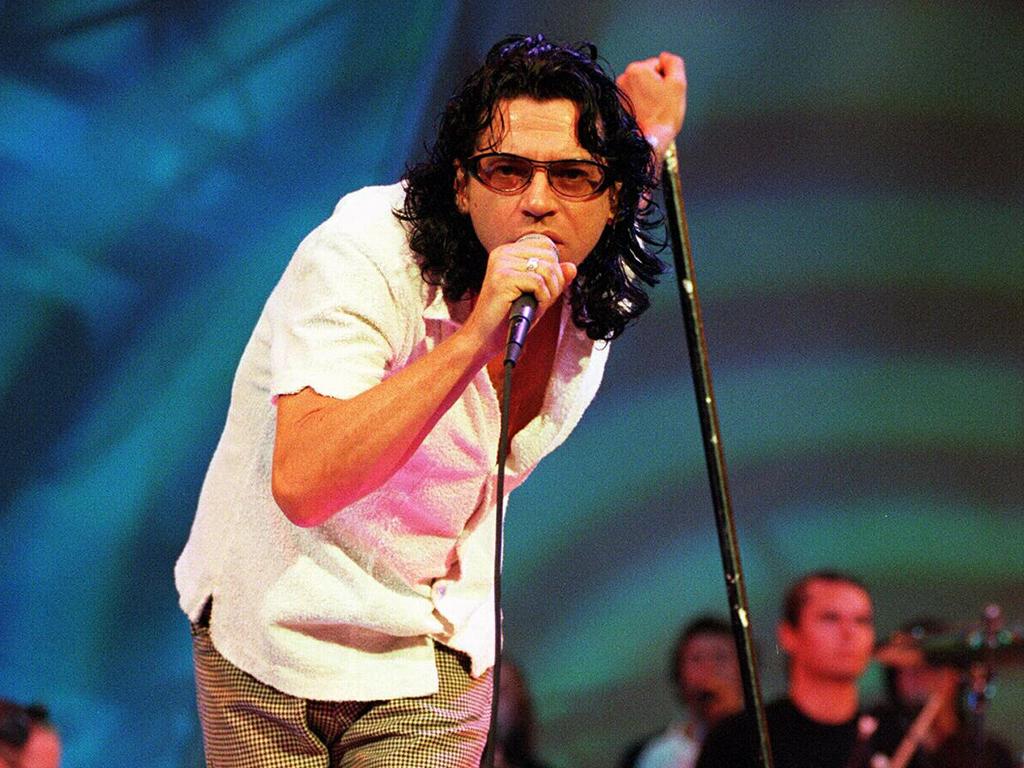
“He was unconscious and there was blood coming out of his mouth and ear,” Christensen recalls in Mystify, the new documentary about Hutchence’s life. “I thought he was dead.”
A part of Hutchence did die that day, as his personality changed from “joyful, sweet, deep and emotional” to “dark and very angry”.
“We got to the hospital and he woke up and was aggressive,” she explained. “They were trying to make him stay but he was physically pushing them away.”
“When Michael hit his head, he came back a different person and I’m sure doctors were prescribing all sorts of weird and wonderful concoctions,’’ bassist Garry Garry Beers told Sunday Night in 2014.
“He was a dick and it wasn’t him, that’s the thing. It wasn’t the Michael we knew and that’s what was so surprising. He couldn’t smell, he couldn’t taste, he was drinking wine by the bottle ’cause it was just like nothing to him.’’
Hutchence’s sensory interest in food and wine was erased by the attack, and, as Beers suspected, he began taking a cocktail of drugs to treat the pain caused from the injury.
“Things got very heavy in his head,” Christensen recalled. “He didn’t seem himself.”
THE DOWNFALL
After recovering in a Danish hospital for a fortnight, Hutchence holed up for a month at home with Christensen, “throwing up blood and pushing away all food”.
By October, still having not fully recovered, rehearsals for the next album began at his villa in the south of France.
Hutchence was notably different during the sessions, inviting a slew of models and celebrities to his house during what was meant to be a period of intense work. Fearing such distractions would derail the recording process, the band decided to relocate to a hard-to-reach studio on the Isle of Capri.
Although it was Hutchence who originally found the studio, after spotting an advertisement for it in a magazine, he quickly came to loathe the Alcatraz-type isolation. In the 2005 biography of the band, INXS: Story to Story, producer Mark Opitz, who was sharing a villa with the singer, recalls being woken on the first night by the sounds of Hutchence upstairs, smashing up furniture.
This was only the beginning of his erratic behaviour. “Things got worse,” Tim Farriss recalls. “Michael was really out of himself.”
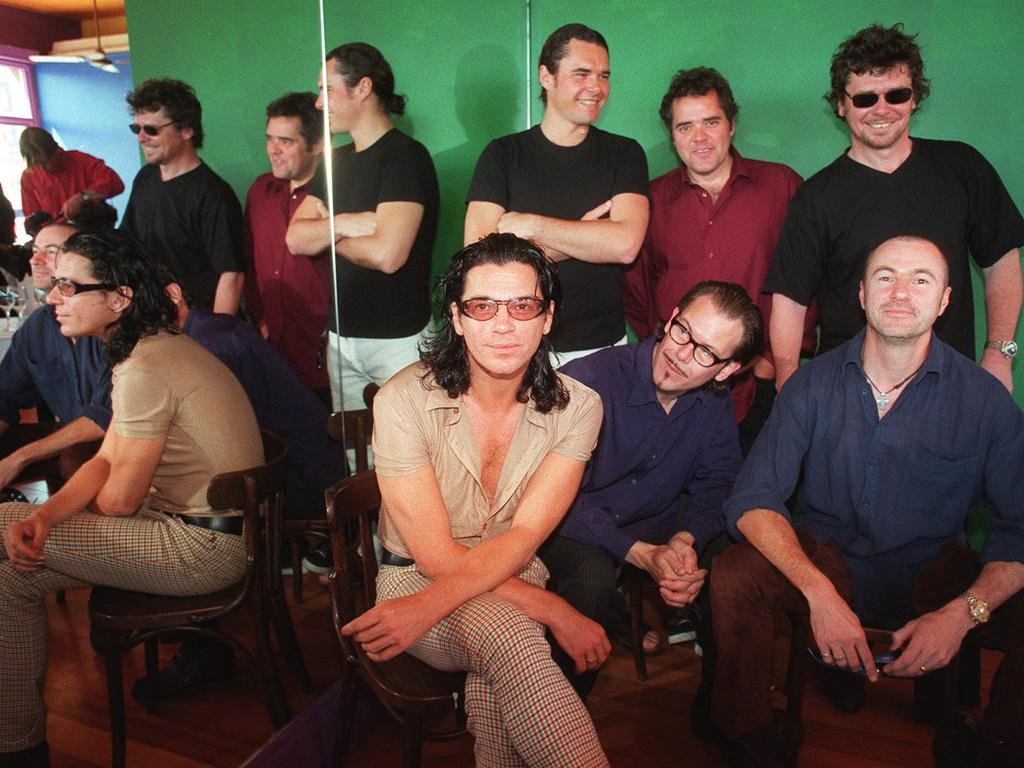
At one point, during a heated argument, Hutchence threatened to stab bassist Garry Gary Beers with a knife. “Michael was very troubled at the time,” Tim Farriss explained in the liner notes to the band’s Anthology. “A very different human being. None of us felt like we really knew him.”
One recording session was abandoned when a drunken Hutchence bellowed, “We need more aggression on this track”, before forcefully shoving a microphone through the strings of Andrew Farriss’s acoustic guitar. He had recently become obsessed with the grunge music coming out of Seattle and feared his band would be left behind if they didn’t adapt to this dark new sound.
“Michael had very violent moments,” guitarist Kirk Pengilly recalled. “He threw his microphone stand around inside the studio, and he threw violent tantrums all the time.”
The band took a month-long break for Christmas and, when they returned, Hutchence had seemingly returned to normal.
The resulting album, Full Moon, Dirty Hearts only reached #53 in America, although it did well in the UK and Australia, reaching #3 and #4 respectively. It was, however, the band’s lowest-charting album in the States since 1981. They wouldn’t release another record for four years.
The gulf between Hutchence and his bandmates was growing quickly. After recording was completed on the album, Hutchence began work on a solo record he would never complete. He had also started dating Paula Yates, who was, at the time, married to Boomtown Rats vocalist Bob Geldof.
A string of high-profile relationships with the likes of soap actor Kym Wilson, Belinda Carlisle, Kylie Minogue and Helena Christensen had seen Hutchence receive his fair share of column inches, but this latest love affair saw the UK tabloids attack him with a ferocity he had yet to experience.
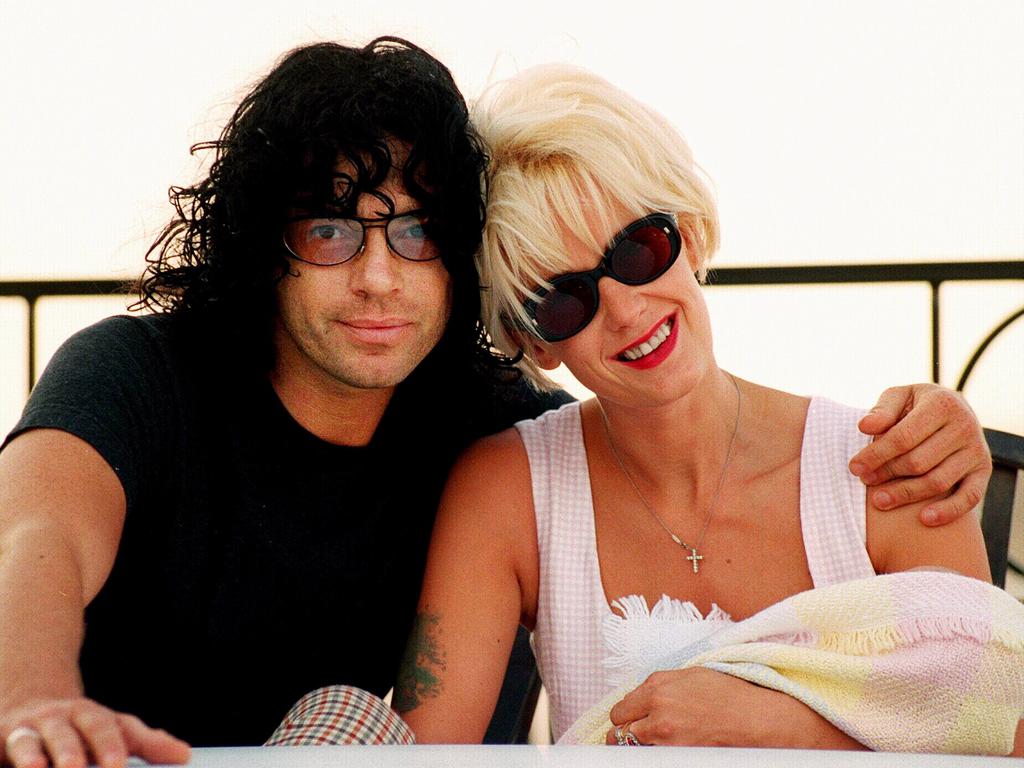
Due to his high-profile charity work, Geldof was seen as a highly sympathetic figure in England. Yates was considered a love rat and constantly hounded by the press. In March of 1995, sick of the ceaseless tabloid attention, Hutchence lashed out and punched a photographer in London. He was arrested and charged with assault.
In the 1990s, next to nothing was known about the dramatic personality changes that can occur as a result of brain injuries. As a steady stream of professional footballers and boxers continue to present with symptoms of chronic traumatic encephalopathy (CTE), a degenerative brain disease caused by repeated micro-concussions, there has been increased research and focus on the impact of concussions on behaviour and impulse control. Although CTE occurs as a result of numerous small blows to the head over a number of years, one severe jolt is enough to permanently change someone’s personality. Those close to the singer believe this is what happened to him.
“It made sense to me the more I read,” his sister Tina told The Guardian last year, “because Michael’s personality changed dramatically.”
She was more blunt last week on Today, stating firmly, “There is no way this man would’ve not taken his life at some stage if there was not some intervention.”
Sadly, there wasn’t. Hutchence died alone, in a room at the Ritz-Carlton in Double Bay on the morning on November 22, 1997, having taken his own life.
THE END IS NIGH
The final 18 months of Hutchence’s life was a mix of tragedy and joy. In August 1996, Yates gave birth to Hutchence’s only daughter, Heavenly Hiraani Tiger Lily. Their joy was short lived: the following month a nanny tasked with looking after Yates’ three other daughters while the pair were in Australia found opium in a Smarties tube in her home, and went to the police.
The couple claimed the drugs were planted, and although Yates was arrested, no charges were laid. This incident was, however, enough to see Geldof granted temporary custody of the three eldest children, a situation that sent Hutchence and Yates spiralling. That same month INXS performed the as-yet-unreleased song Searching at the ARIA Awards. The song’s lyrics, penned by Hutchence, include the lines: “Saw a mother screaming, she had lost control of what she once believed in, and she was not alone.” Given his situation, it was an emotional performance.
“Right up until we walked on stage, Michael was in tears,” Tim Farriss recalled years later. “Paula had just left the country quickly, something to do with custody of the children.
“All of a sudden, it was showtime. Michael had to wipe his eyes and go out there and sing Searching.
“It is one of the greatest performances we ever gave on television,” he continued. “It was totally live, and Michael sang with such emotion: ‘I am searching, I am not alone.’ It’s still too heavy for me to look at, even today.”
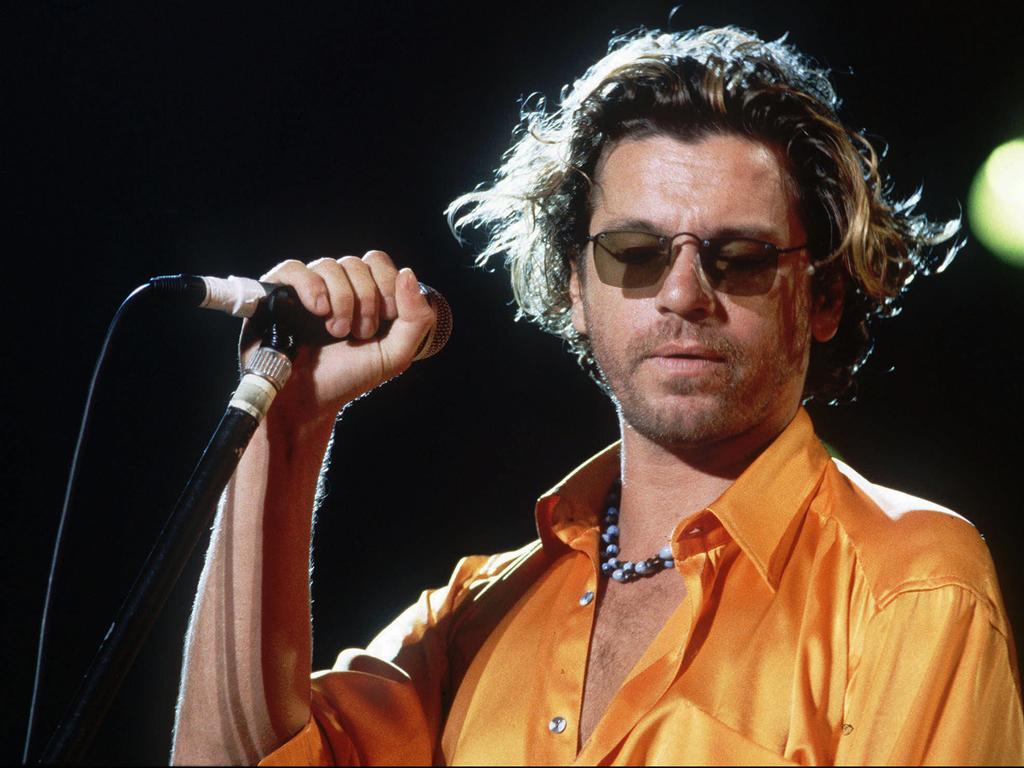
Searching wound up on 1997’s Elegantly Wasted, the band’s final album with Hutchence, and their first in four years. They held high hopes the record would reverse their flagging fortunes, with the title track in particular earmarked for success.
After the disappointing response to 1993’s Full Moon, Dirty Hearts, and the chaos that ensured during its recording, the band had taken a long break. Elegantly Wasted was not celebrated as the return to form they had hoped, debuting at #14 in Australia, #16 in the UK, and — like their last album — failing to crack the US top 40.
However, tours of South Africa, Europe and America had been well-received and well-attended, and as the band returned to Australia in November, they hoped a 13-show tour of the country to mark their 20th anniversary would provide the nostalgia boost necessary to punt the album back up the charts.
On November 21, the band drove to a television studio in Sydney to rehearse for the upcoming tour, which was set to begin two days later.
As the rehearsal wound down, Hutchence was in a silly mood. Various band members and backing vocalists filed out, and only Kirk Pengilly, Andrew Farriss and the singer remained. Wrapping practice after a few acoustic strum-alongs, the three agreed to meet back the following morning to continue rehearsals, exchanged a few jokes, and Hutchence, grinning, burst into a Pythonesque walk as he left the studio.
The next morning, the band gathered at the studio. Hutchence was late, but this was nothing out of the ordinary. Considering Pengilly had received a drunken answering machine message from Hutchence at 11pm the previous night, inviting him to come hang at the hotel with a group of his friends, his tardiness that morning came as no shock. As the band waited for Hutchence to arrive, they switched on a portable TV they’d set up in the rehearsal space in order to watch the cricket. Soon there was a breaking newsflash. It was about Hutchence.
Pengilly later cast his mind back to the previous day, when the pair were chatting in the car on the way to the studio. “You would have never, ever had an inkling that something was going to happen,” he says. “It wasn’t in Michael’s voice, manner, or vibe.”
“We were doing some songs acoustically with Michael and our background singers, to get the vocal parts right,” Andrew Farriss recalled, “and I remember sitting in this circle of people and having this deep, deep feeling of love. I can’t explain it — it was weird. And very powerful.
“Then I can remember sharing a joke with Michael. And the last time I saw his face, he was smiling at me as he walked out the door. That is one of the many blessings God has given me in this life — that the last time I saw Michael’s face, he was smiling.”
A LONELY END
Hutchence’s death was ruled a suicide, but a distraught Paula Yates refused to believe this, speculating it may have been a case of autoerotic asphyxiation gone awry. This story, although based on zero evidence, spread throughout the tabloids, and is widely believed to this day. Blood tests confirmed the presence of alcohol, cocaine, Prozac and prescription drugs in his system.
Hutchence’s final few phone calls were erratic and emotional. At 5am, the morning he took his life, he yelled at Geldof over the phone, who, through due to the custody dispute regarding her other daughters, was preventing Yates from bringing Tiger Lily to visit him.
Geldof’s police statement claims Hutchence was “hectoring and abusive and threatening”. The occupant in the next room reported a loud male voice swearing about the same time.
Yates’ police statement claimed Hutchence was “frightened and couldn’t stand a minute more without his baby”. She explains how he spoke to her on the phone shortly before he rang Geldof, telling her, “I don’t know how I’ll live without Tiger.”
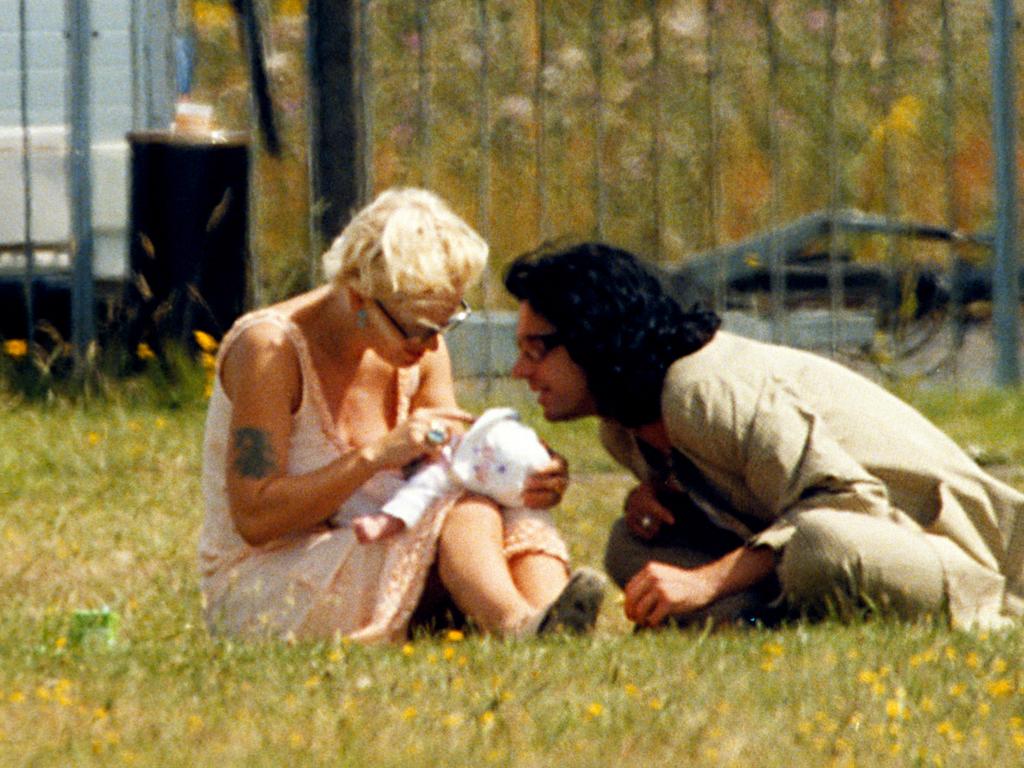
After speaking to Geldof, Hutchence tried to call his personal manager Martha Troup, but got her voice mail. “Marth, Michael here,” the message went. “I’ve f***ing had enough.” Troup tried to return the call a few hours later when she woke, but nobody answered.
At 9.54, Hutchence made his final phone call, to ex-girlfriend Michèle Bennett, crying and pleading to see her. She arrived by 10.40am, but he didn’t answer his door. Confused, she left.
Just over an hour later, his lifeless body was discovered by a hotel maid. He was aged 37. There was no suicide note.
Despite being worth an estimated $20 million, the globally successful rock star who sold an estimated 60 million records as lead singer of INXS, died with a sum total of $506 in cash, with a further $572 in a shared bank account.
WHERE DID THE MONEY GO?
As INXS became global superstars, Hutchence made moves to protect his vast, growing fortune. Despite advice from the band’s manager Chris Murphy, Hutchence instead trusted a team of financial advisers, signing over many of his assets to various holding companies in order to protect himself from vultures, indemnify him from third party claims, and to avoid paying tax.
A complex web of offshore accounts, holdings companies and various trusts were set up to hold his various assets, including the rights to his intellectual property. Hutchence was not the beneficiary of these trusts and was technically bankrupt when he died, nullifying the wishes of his will, in which he left half his fortune to his daughter Tiger Lily.
It wasn’t technically his fortune when he died — the mansions, the fleet of luxury vehicles, and even the music he created. The final set of lyrics he wrote the night he died — as soon as the ink left the pen and hit the paper, they ceased to belong to him.
Soon after his death, the family discovered that three Gold Coast properties, a luxury waterfront mansion on the Isle of Capri where he hosted his sister Tina’s wedding, a villa in France, a house in London, an Indonesian development and numerous other assets were not technically his.
Other real estate, guitars, art, a Harley-Davidson and a Jeep were sold by his estate to cover legal fees.
THE TRAGIC AFTERMATH
Hutchence’s only daughter, Tiger Lily, turns 23 next month. According to Richard Lowenstein, who directed the documentary Mystify, she is still waiting for an inheritance that may never come.
“We went to her flat to watch the documentary and it was like a little squat,” Lowenstein said.
“I said, ‘Where’s the money from your dad’s estate?’ and she said ‘I’ve never received anything from anyone.’”
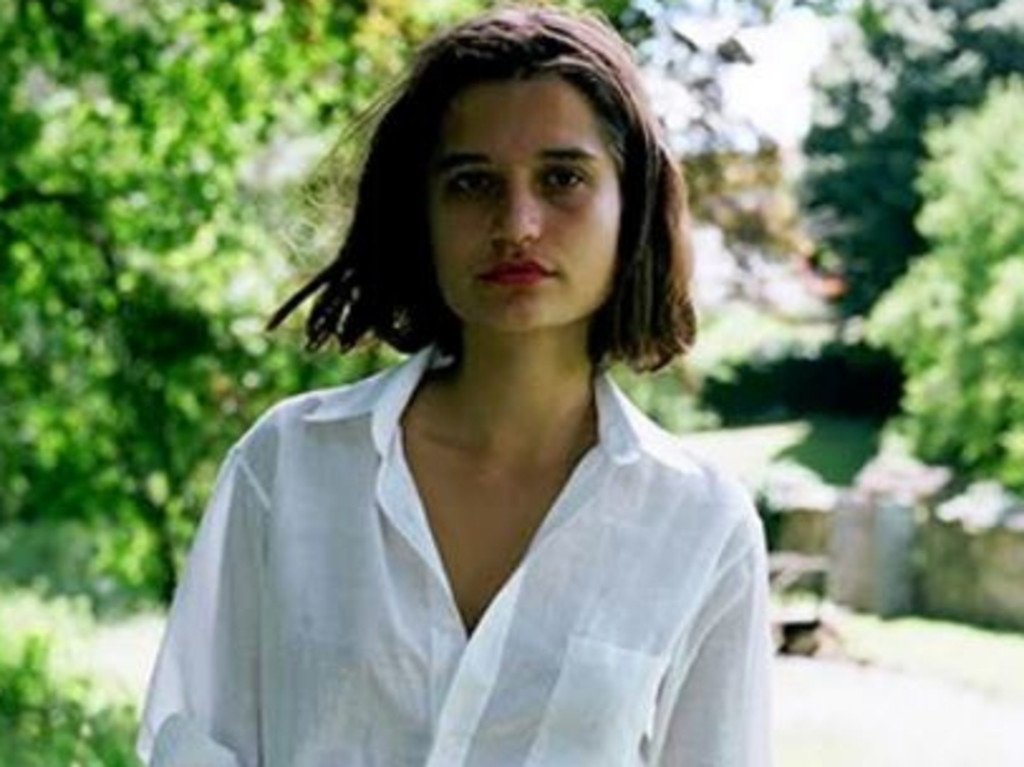
Yates never recovered from Hutchence’s suicide.
In April, 1998, less than six months after his death, she was admitted to a psychiatric hospital with depression. That June she attempted to take her own life, but was found unconscious, and revived.
She lost custody of her eldest three children, again, with Geldof this time being awarded full custody. That October, Hutchence’s father Kell launched proceedings to gain sole custody of Tiger Lily, after reading troubling reports of Yates’ new romantic relationship. He later aborted this attempt, after being assured of Tiger Lily’s wellbeing.
On September 17, 2000, on her daughter Pixie’s 10th birthday, Yates died of a heroin overdose. The coroner ruled it wasn’t likely a suicide attempt, but the result of being “foolish and incautious”.
As Yates took her last breath, needle sticking out of her arm, four-year-old Tiger Lily was the only one there: alone in the house with her mother.
— If you or someone you know needs help, contact Lifeline on 13 11 14
— Nathan Jolly is a Sydney-based writer who specialises in pop culture, music history, true crime and true romance. Follow him on Twitter @nathanjolly



